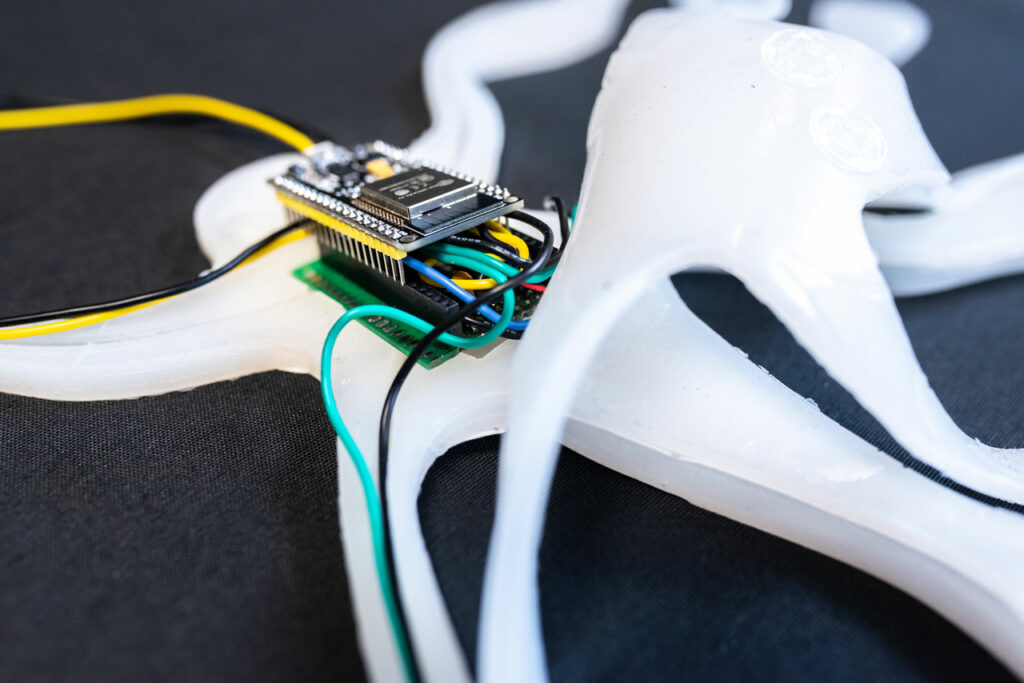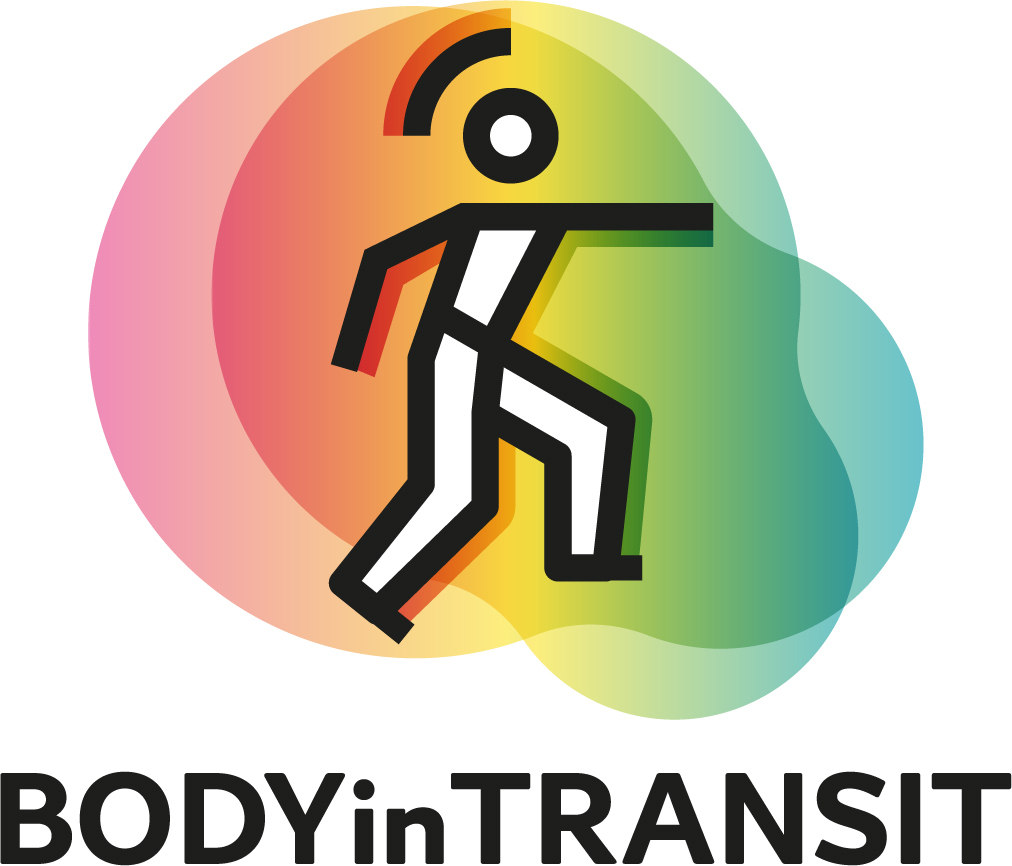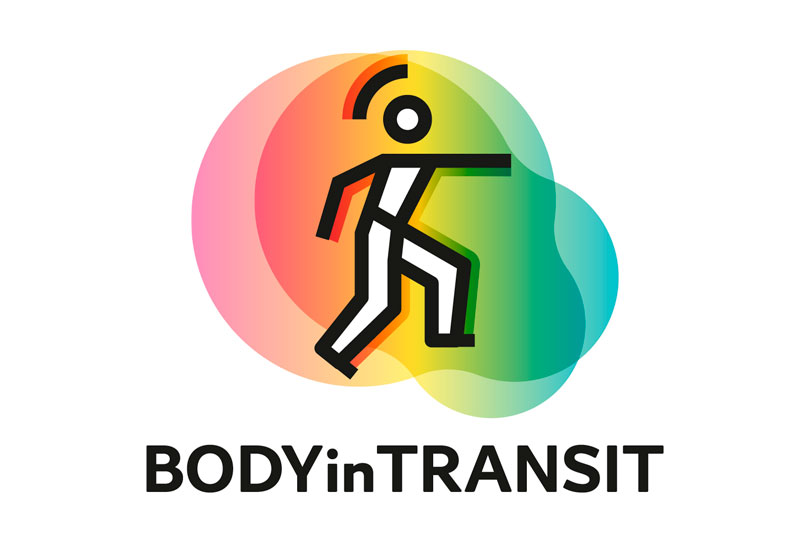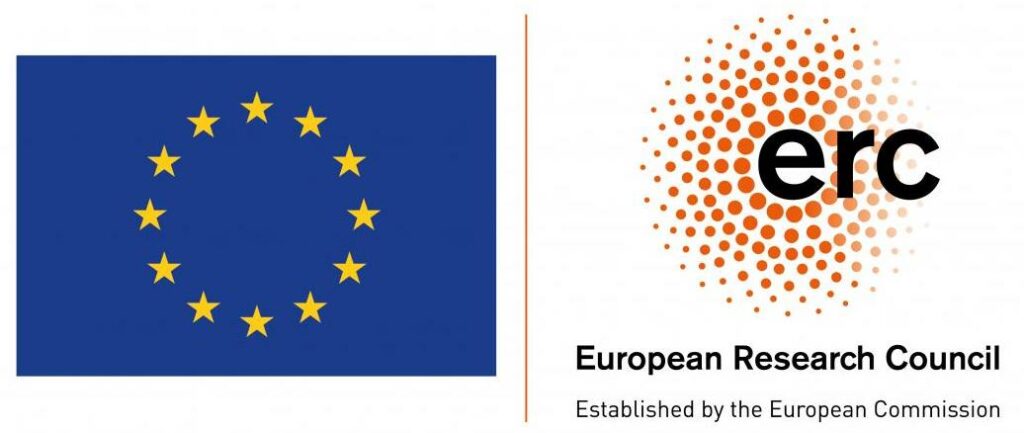BODYinTRANSIT
Sensory-driven Body Transformation Experiences On-the-move.
2022-2026
BODYinTRANSIT is a research project funded by the European Research Council (ERC) under the European Union’s Horizon 2020 research and innovation programme (grant agreement No 101002711). It was selected as 1 of the 8 ERC Consolidator Grant project examples 2020.
Our team is highly multidisciplinary and international. Our team members and collaborators include HCI/computer scientists, psychologists and cognitive neuroscientists, data scientists, engineers, acousticians, philosophers, ethics experts, designers and artists, professional dancers and clinical practitioners. The international research network for BODYinTRANSIT includes, among others, collaborations with University College London, Birkbeck – University of London, IRCAM – Paris, LMU – Munich, Tilburg University, Ritsumeikan University – Japan, and the Estonian Academy of Arts. We are in the process of recruiting team members but check the team of our current project MAGIC outFIT and the website of the DEI Interactive Systems Group at Universidad Carlos III de Madrid to get an impression of some of our current members/collaborators.
Our physical body is the interface between ourselves and the world around us. The way we perceive our body, its appearance, configuration and motor abilities shapes our behaviour, emotion and social functioning. New sensor-based and bodily sensory feedback devices, such as those brought by immersive virtual reality, allow creating Body Transformation Experiences (BTE). These perceptual illusions, like being in a child’s body, lead to experience changes in one’s own body. Beyond fun experiences, the new field of BTE engineering brings a significant leap for wellbeing and health applications, as well as for the embodiment of robotic devices and virtual avatars, and smart clothing. However, the neuroscience of core sensory-driven changes in Mental Body Representations currently represents piecemeal experiments in very controlled settings that restrict body movement. This hinders the transfer of the basic principles discovered to real-world complex environments and practical problems.
Through systematic and iterative research, the project BODYinTRANSIT will establish a theoretical ‘BTE design framework’ for individualized sensorial manipulation of mental body representations with long-lasting effects in everyday use contexts. The framework will stand on four scientific pillars to induce, measure, support, personalize and preserve body transformations: 1) neuroscience of multisensory body perception, 2) data modelling of the links between body-representation, behaviour, emotion and social functioning, 3) wearable-based embodied multisensory interaction design, and 4) field studies in real-life and on-the-move contexts with physically inactive users, somatic practitioners and users with body image concerns.
Tangible outcomes will include design principles, data formats, models, measures and paradigms enabling and guiding BTE engineering innovations. BODYinTRANSIT envisions personalized BTE technologies able to measure MBR and adapt bodily sensory feedback to modify it – individually, online and while on-the-move.
“This project has received funding from the European Research Council (ERC) under the European Union’s Horizon 2020 research and innovation programme (grant agreement No 101002711)“.

BODYinTRANSIT is a research project funded by the European Research Council (ERC) and led by Prof. Ana Tajadura-Jiménez. It will run from Jan 2022 to Dec 2026 within the Department of Computer Science Department at Universidad Carlos III de Madrid, Spain.
BODYinTRANSIT

Sensory-driven Body Transformation Experiences On-the-move.
2022-2026
Our team is highly multidisciplinary and international. Our team members and collaborators include HCI/computer scientists, psychologists and cognitive neuroscientists, data scientists, engineers, acousticians, philosophers, ethics experts, designers and artists, professional dancers and clinical practitioners. The international research network for BODYinTRANSIT includes, among others, collaborations with University College London, Birkbeck – University of London, IRCAM – Paris, LMU – Munich, Tilburg University, Ritsumeikan University – Japan, and the Estonian Academy of Arts. We are in the process of recruiting team members but check the team of our current project MAGIC outFIT and the website of the DEI Interactive Systems Group at Universidad Carlos III de Madrid to get an impression of some of our current members/collaborators.
Our physical body is the interface between ourselves and the world around us. The way we perceive our body, its appearance, configuration and motor abilities shapes our behaviour, emotion and social functioning. New sensor-based and bodily sensory feedback devices, such as those brought by immersive virtual reality, allow creating Body Transformation Experiences (BTE). These perceptual illusions, like being in a child’s body, lead to experience changes in one’s own body. Beyond fun experiences, the new field of BTE engineering brings a significant leap for wellbeing and health applications, as well as for the embodiment of robotic devices and virtual avatars, and smart clothing. However, the neuroscience of core sensory-driven changes in Mental Body Representations currently represents piecemeal experiments in very controlled settings that restrict body movement. This hinders the transfer of the basic principles discovered to real-world complex environments and practical problems.
Through systematic and iterative research, the project BODYinTRANSIT will establish a theoretical ‘BTE design framework’ for individualized sensorial manipulation of mental body representations with long-lasting effects in everyday use contexts. The framework will stand on four scientific pillars to induce, measure, support, personalize and preserve body transformations: 1) neuroscience of multisensory body perception, 2) data modelling of the links between body-representation, behaviour, emotion and social functioning, 3) wearable-based embodied multisensory interaction design, and 4) field studies in real-life and on-the-move contexts with physically inactive users, somatic practitioners and users with body image concerns.
Tangible outcomes will include design principles, data formats, models, measures and paradigms enabling and guiding BTE engineering innovations. BODYinTRANSIT envisions personalized BTE technologies able to measure MBR and adapt bodily sensory feedback to modify it – individually, online and while on-the-move.
“This project has received funding from the European Research Council (ERC) under the European Union’s Horizon 2020 research and innovation programme (grant agreement No 101002711)“.
BODYinTRANSIT is a research project funded by the European Research Council (ERC) and led by Prof. Ana Tajadura-Jiménez. It will run from Jan 2022 to Dec 2026 within the Department of Computer Science Department at Universidad Carlos III de Madrid, Spain.


